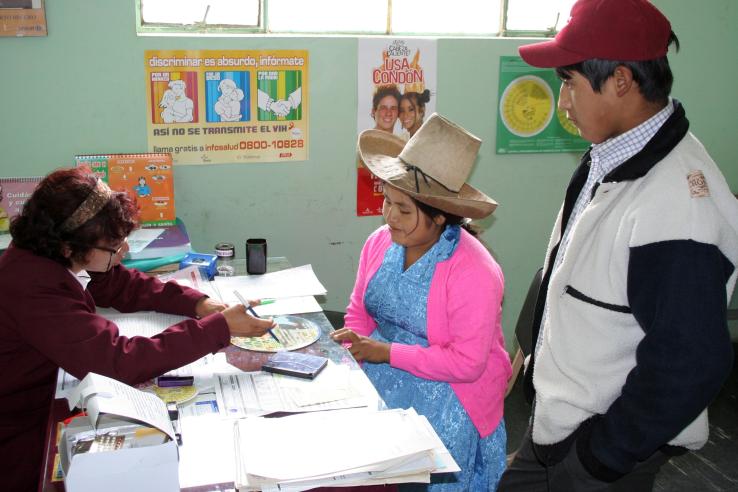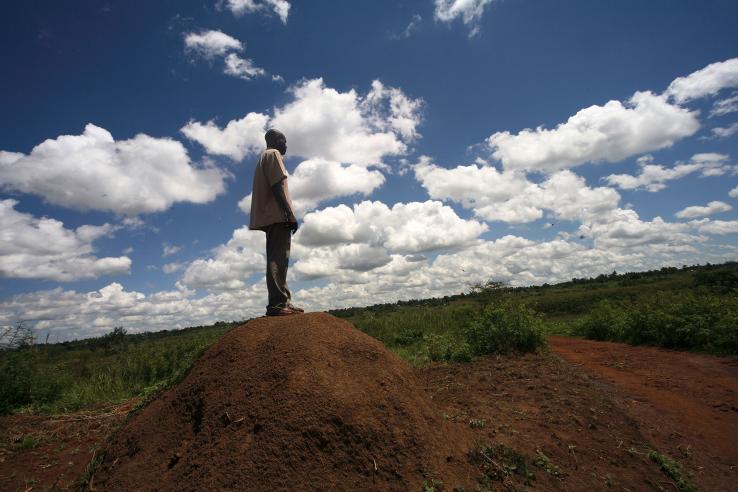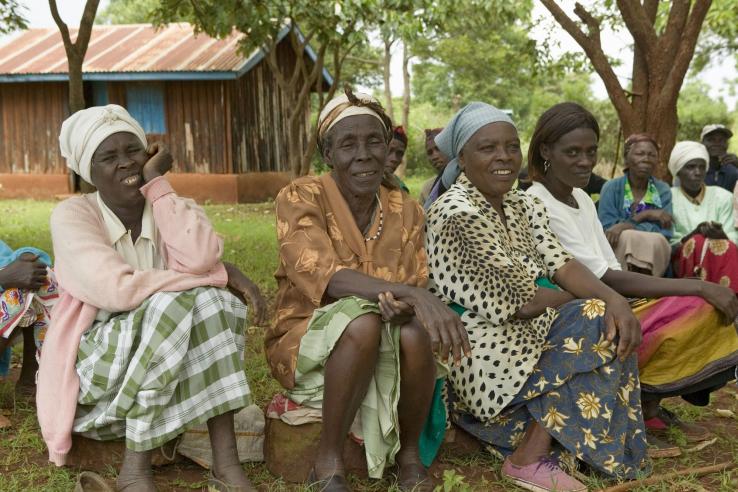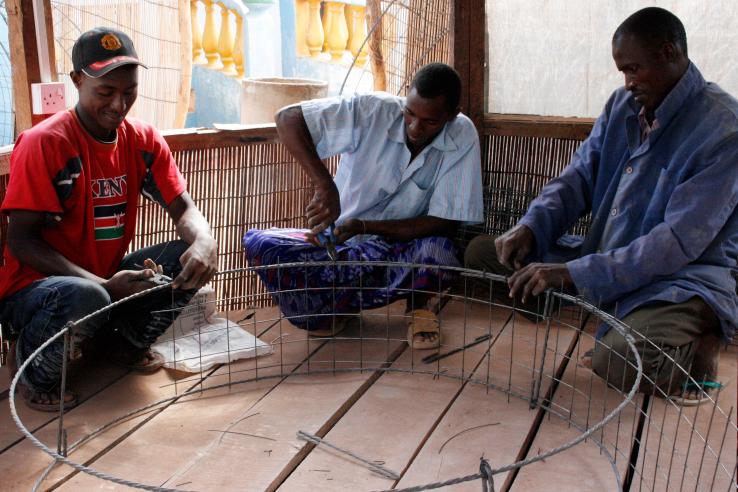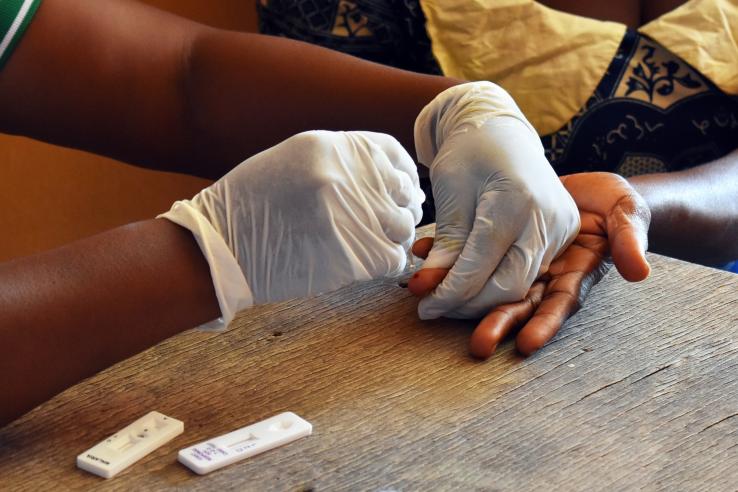Displaying 151 - 165 of 1291
Evaluation
Researchers assessed whether the provision of health training alongside microfinance services impacted the health or financial behavior of Peruvian microcredit clients. They found that additional health training affected neither.
Evaluation
In “the text message capital of the world,” the Philippines, researchers tested the effect of text message reminders on client repayment rates. In contrast with previous research, they found that text message reminders did not increase repayment on average. Yet for repeat borrowers, who had known their loan officer longer, reminder messages with the officer’s name did result in significantly higher repayment rates.
Evaluation
Diarrhea is a leading cause of death in children under the age of 5, but adding small amounts of chlorine into water can treat water and prevent a large number of these deaths. Providing free dispensers for chlorine to treat water reduced under-five mortality. Children living in villages with dilute chlorine solution dispensers were 63 percent less likely to die relative to the comparison group.
Evaluation
Researchers are working with a large bank in the Philippines, using random assignment to offer loans to SME applicants who fall just below the threshold to be automatically approved for a loan. Comparing firms that received the loans to a similar group that did not will allow for a better understanding of the impact of loans on firm performance and growth as well as any additional effects on firms in the same market or in the loan recipient’s supply chain.
Evaluation
Researchers evaluated the effects of a free health insurance policy and UCTs of the same value on the economic, health, and psychological outcomes of informal workers in Kenya. Participants who received health insurance self-reported reduced stress and had lower cortisol levels; UCTs led to fewer children in the household being sick and reduced overall hospitalizations in the household. Neither intervention had meaningful impacts on economic outcomes or other metrics of health and healthcare utilization.
Evaluation
Researchers distributed vouchers for antimalarial drugs and malaria rapid diagnostic tests, redeemable at four local drug shops in Western Kenya. Taking some subsidy money away from antimalarial drugs and putting it towards subsidizing and promoting rapid diagnostic testing could improve targeting.
Evaluation
To evaluate potential methods of increasing voter participation, researchers examined the effect of a simple nonpartisan leaflet (e.g., a printed card) on voter turnout in the 1998 general election in the US city of Hamden, Connecticut. The card had no impact on turnout of voters registered with one of the two major political parties, but had a significant impact on turnout of unaffiliated voters.
Evaluation
Researchers conducted a randomized evaluation of the VIP:Voice, a digital election participation platform, to measure the impact of information and communications technologies on individuals’ political participation. Via the platform, researchers interacted with nearly 100,000 citizens, recruited citizen monitors in 38 percent of the wards of South Africa and deployed 347 citizen monitors to polling places. However, around 50 percent of participants dropped out at each subsequent, and more time-intensive, form of engagement requested via the platform.
Evaluation
Researchers partnered with the Susan Thompson Buffett Foundation to randomly offer scholarships to Nebraska high school graduates who applied for financial assistance. Initial results from the ongoing study indicate that scholarship offers increased college enrollment and persistence while shifting students toward more selective institutions. The effects were largest for students who had lower high school grades and ACT scores.
Evaluation
A large charitable organization in the United States conducted a series of direct mail appeals for donations using different identity primes in 2009-2010. Researchers found that priming a potential donor’s identity as either a previous donor to charity or as a member of their local community generated more donations.
Evaluation
Researchers partnered with banks in three countries to see if removing the costs to opening basic bank accounts would lead to more households opening and using bank accounts. Overall, use of the accounts was low across all three countries, and being offered a free, basic bank account had no impact on savings, expenditures, health, or education. These results suggest that policies focused only on expanding access to basic bank accounts that already exist in given location are unlikely to improve welfare, on average.
Evaluation
Herders may change their herding practices to better sustain the land if they own rights to it, which could also translate into bigger and healthier animals, and more income for the herders. In this study, carried out near two cities in Mongolia, researchers evaluated the impact of private property rights on land use and herder income.
